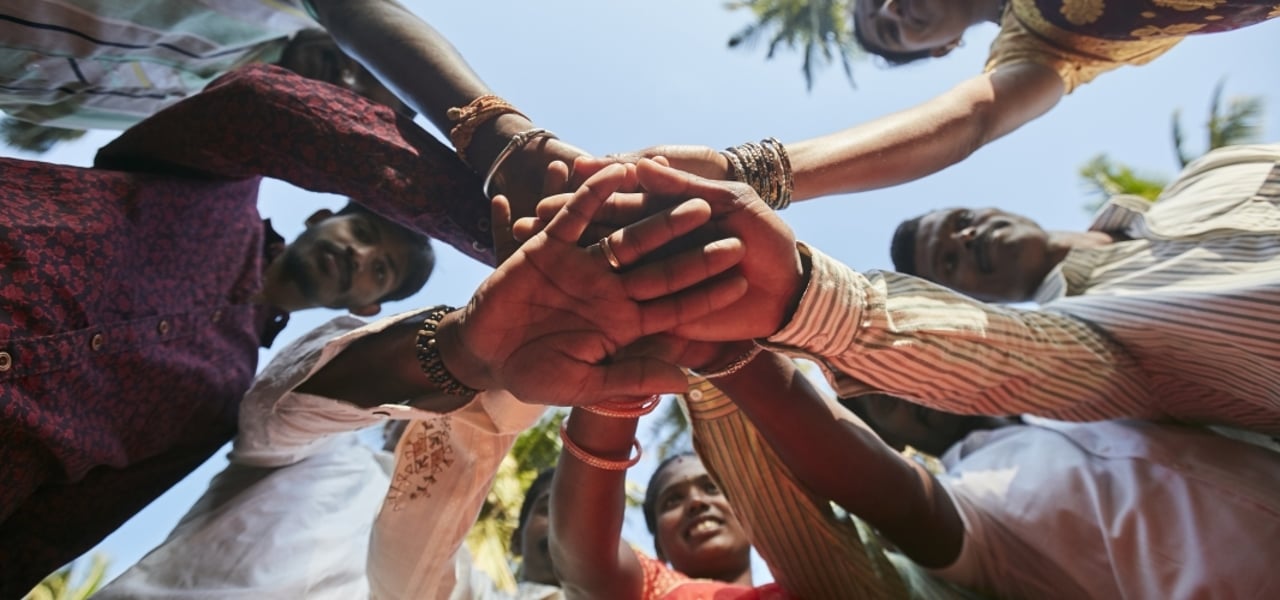Survivor Advocacy Network Spreads in Southern India

On 16 December, 80 survivors of bonded labour from across Karnataka joyfully gathered to inaugurate their state’s first branch of the Released Bonded Labourers’ Association (RBLA), which helps survivors unite their voices for an end to bonded labour and human trafficking.
These survivors have named their organisation Udayonmukha, which means “emerging” in Kannada. IJM and our partners are excited for the energy and authenticity these leaders will bring to the fight.
“The process to launch Karnataka’s RBLA has been a rewarding journey,” shares IJM’s Praisey Bai. “We are sure this is only the beginning of the survivor-led movement, and that this effort will mushroom into a state-wide network of released bonded labourers!”
Udayonmukha will be governed by nine survivor leaders, including its new president Papamma, a young woman rescued from bondage at a brick kiln in 2014. She and 11 other people had been trapped and forced to work for four years, but today she’s a bright and inspiring leader ready to help her community.
At the launch, Papamma spoke passionately about her vision for the RBLA alongside notable government leaders, including one official in charge of the whole state’s response to bonded labour. He encouraged survivors and committed to following their lead, saying, “Be vigilant and keep an eye out, and when you do come across others who are bonded like you were, go to your local officials and report it immediately.”
Branches of the RBLA in neighbouring Tamil Nadu state have seen great success in helping free others this way. Established in 2014, the Tamil Nadu RBLA now includes seven district branches and 1,500 members across the state. Their leaders have worked with the government to free more than 250 people and help them begin new lives in freedom.
IJM believes the Karnataka branch will soon take up this same role in the anti-trafficking community. As survivors grow from victim-hood to stability, Praisey Bai believes that a supportive and proactive network like the RBLA “ensures that survivors can make a shift to becoming active participants and leaders in the movement to end the crime.”